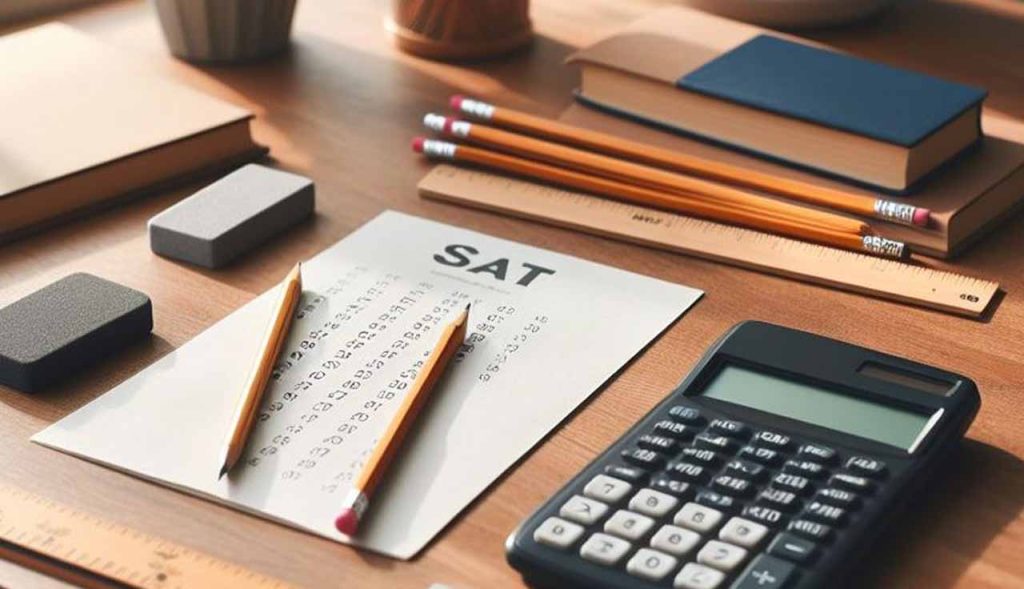When it comes to tackling the SAT, your calculator can be your best ally or a potential source of frustration. To ensure you make the most of this valuable tool, consider the following tips for using a calculator in the SAT exam.
Time Management Strategies During the Calculator Section
The calculator section of the SAT demands not just accuracy but also efficiency. Here are some strategies to help you manage your time effectively:
1. Familiarize Yourself with Your Calculator:
Before the test day, make sure you are well-acquainted with the functions of your calculator. Knowing where each button is located can save you precious seconds during the exam.
2. Practice Mental Math:
While the calculator is a powerful tool, some questions may be solved more quickly without it. Practice mental math to identify situations where manual calculations are faster.
3. Allocate Time Wisely:
The calculator section typically contains a mix of straightforward and complex problems. Allocate your time strategically, focusing on quick wins initially and saving more time for challenging questions.
4. Skip and Return:
If a particular problem seems time-consuming or difficult, consider skipping it and returning later. Prioritize questions that you can answer swiftly to maximize your score.
5. Use Shortcuts and Calculator Features:
Explore time-saving functions on your calculator, such as programmable shortcuts or memory functions. These can streamline calculations and reduce the chance of errors.
Common Mistakes to Avoid While Using a Calculator
Even the most advanced calculators won’t guarantee success if not used wisely. Be aware of these common pitfalls:
1. Over-Reliance on the Calculator:
While the calculator is a valuable tool, don’t become overly reliant on it. Some questions may be more efficiently solved through algebraic manipulation or logical reasoning.
2. Not Checking Your Work:
Calculator input errors can occur, leading to incorrect answers. Develop a habit of double-checking your calculations, especially if an answer seems unusual.
3. Misinterpreting the Question:
Ensure you fully understand the question before reaching for your calculator. Misinterpreting the problem can lead to unnecessary and time-consuming calculations.
4. Forgetting to Change Modes:
If a question involves angles, trigonometry, or other specialized functions, ensure your calculator is set to the appropriate mode. Forgetting to switch modes can result in incorrect answers.
5. Ignoring the Calculator Manual:
Each calculator comes with a user manual. Take the time to review it before the test day to discover hidden features and ensure you’re utilizing your calculator to its full potential.
Practice Exercises for Efficient Calculator Usage
Effective SAT preparation involves not only content review but also practical application. Here are some practice exercises to enhance your calculator skills:
1. Timed Calculator Drills:
Set a timer and practice solving math problems from SAT practice tests using only your calculator. Focus on improving both speed and accuracy.
2. Simulate Test Conditions:
Mimic test-day conditions as closely as possible during your practice sessions. Use the same calculator, time constraints, and distractions to build familiarity and confidence.
3. Review Incorrect Answers:
When reviewing practice tests, pay special attention to questions where you used the calculator. Identify errors and understand how to avoid similar mistakes in the future.
4. Utilize Online Resources:
Explore online platforms that offer SAT-specific calculator tutorials and practice questions. Familiarize yourself with different calculator models and their features.
5. Seek Feedback:
If possible, work with a tutor or study group and seek feedback on your calculator usage. Others may offer insights into alternative approaches or more efficient methods.
By implementing these tips, you can harness the power of your calculator to enhance your performance in the SAT math section. Remember, it’s not just about having the right answers but also about utilizing your resources wisely to maximize your score. Good luck!

Sheema Ahmed is a passionate writer and educator, specializing in crafting content tailored for individuals preparing for challenging exams such as CSS, SAT, and ACT. Born with a fervour for education, Sheema’s journey began at Hazara University, where she graduated with distinction, solidifying her commitment to academic excellence.
